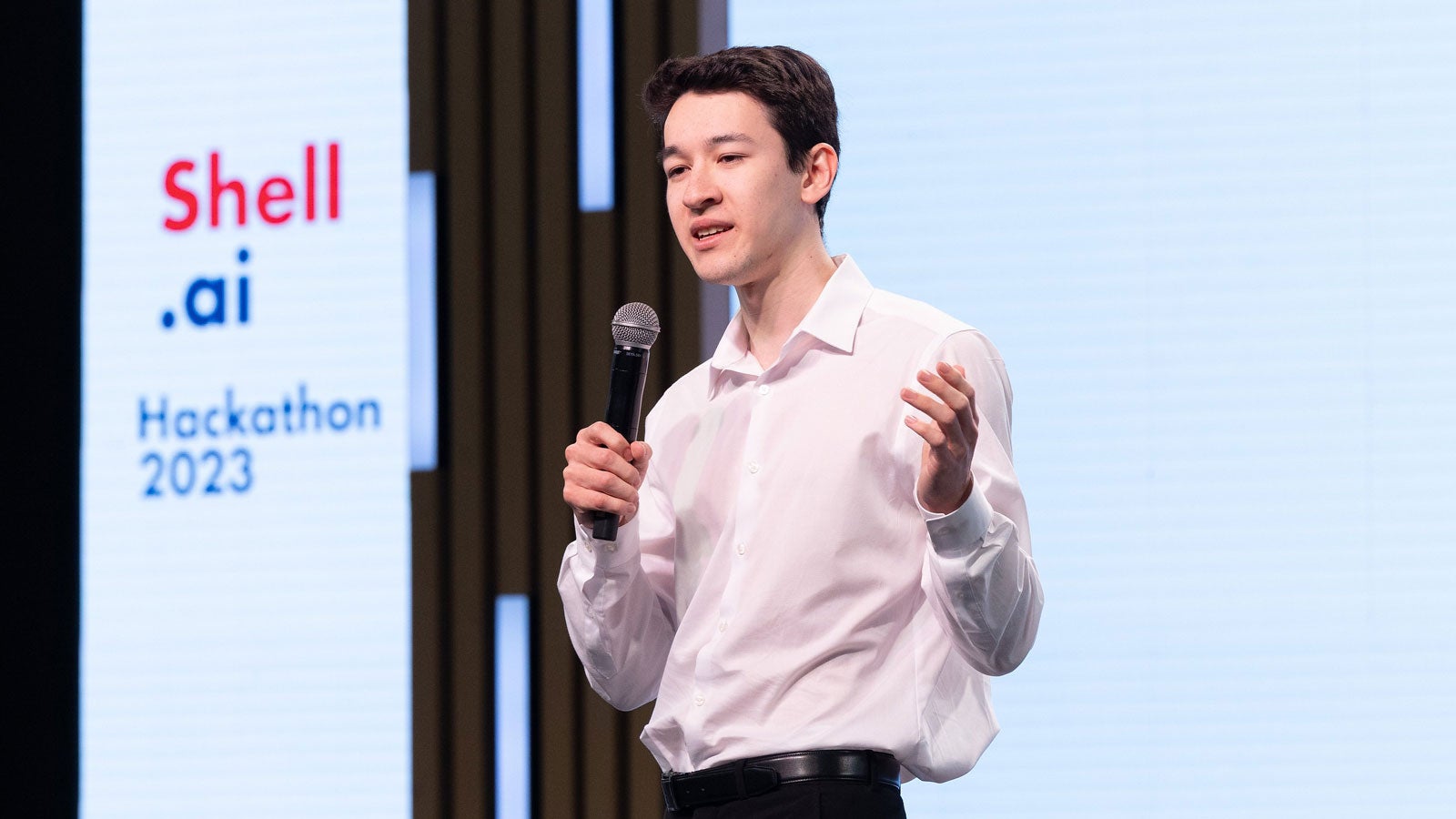Wei Ping Lam, a second-year doctoral student in chemical and biomolecular engineering (ChBE) at Rice University, has won first prize in the international Shell.ai Hackathon for Sustainable and Affordable Energy.

Lam pitched his digital solution at the Changemakers of Tomorrow event held Oct. 10-12 at the Shell Technology Centre in Bangalore, India, in the Agricultural Waste Challenge category. The challenge was to predict residual biomass availability within the state of Gujarat, India, and design a low-cost supply-chain network for biofuel production.
Lam took advantage of satellite data on rainfall and agricultural production in Gujarat for high-accuracy predictions.
He then reformulated the multi-faceted supply-chain optimization problem into a single-objective one:
“Looking at the data,” Lam said, “I realized the transportation costs of residual biomass are much less than its under-utilization costs. Therefore, biorefineries and depots must operate at maximum capacity, implying zero under-utilization costs, which may further be reduced by placing depots close to refineries.”
“This method,” he said, “combined with high-performance computing gave amazing results. I also proposed the idea of a collaboration platform where experts help scale and deploy the solution.”
Lam earned his B.S. in chemical engineering from the University of Illinois, Urbana-Champaign, in 2022. He works in the research group of Haotian Wang, associate professor of ChBE, focusing on electrochemical CO2 conversion.

